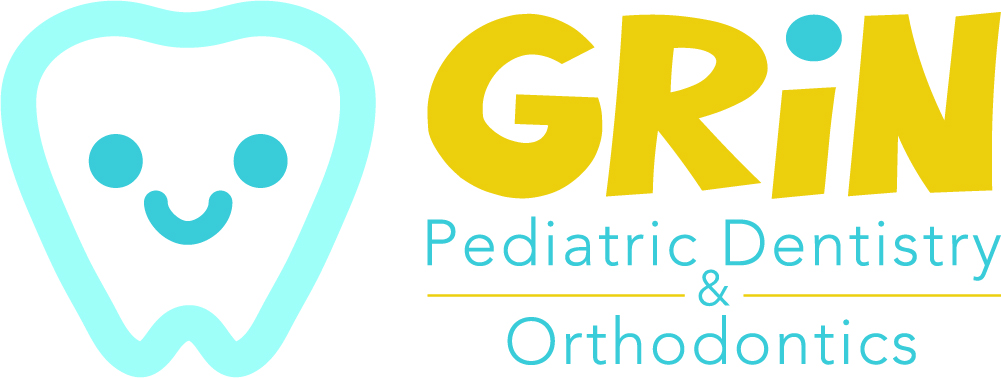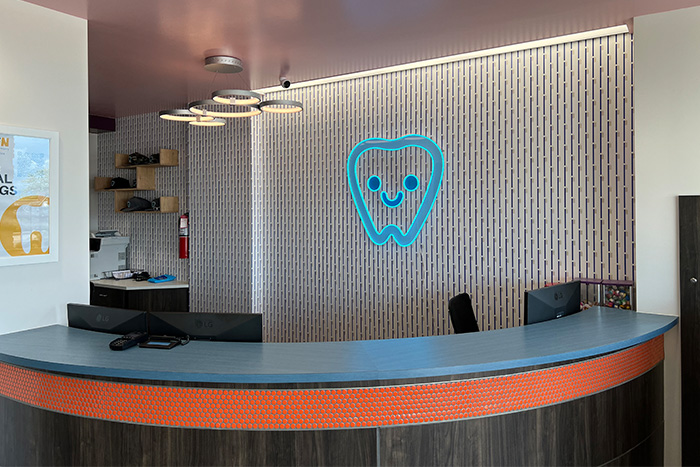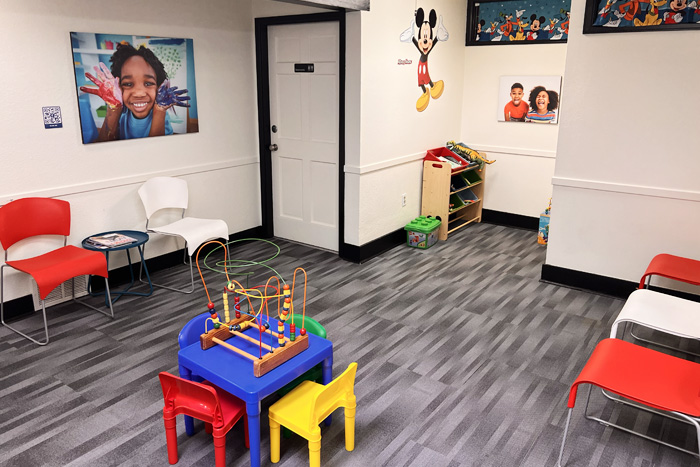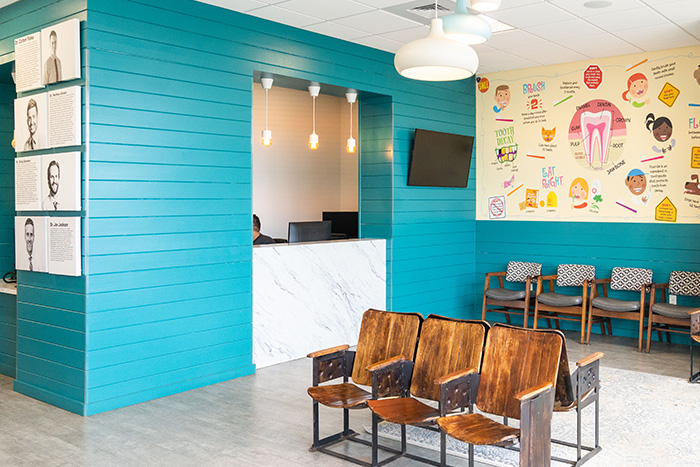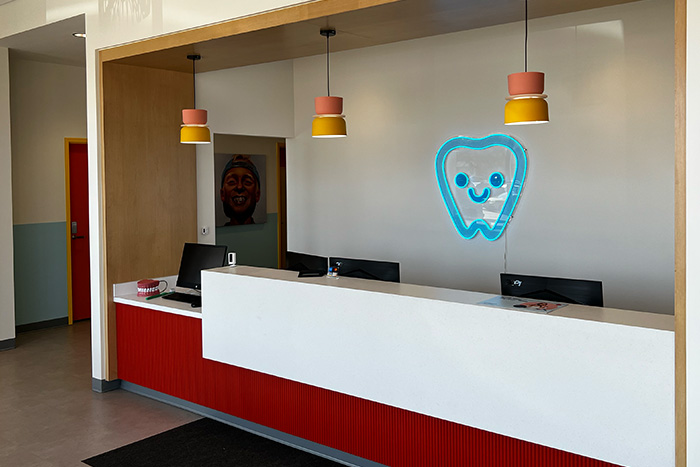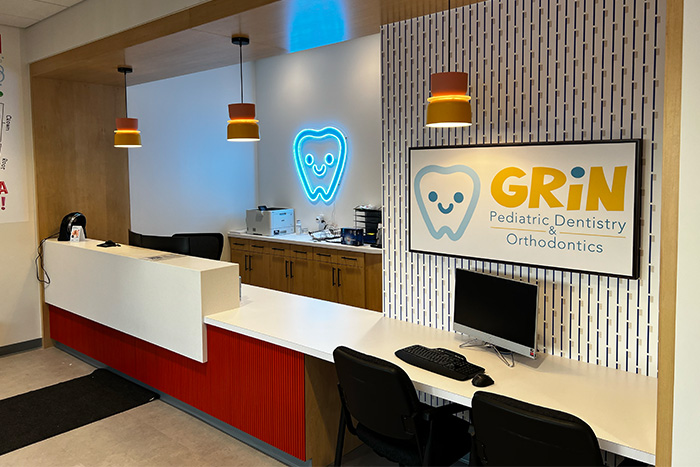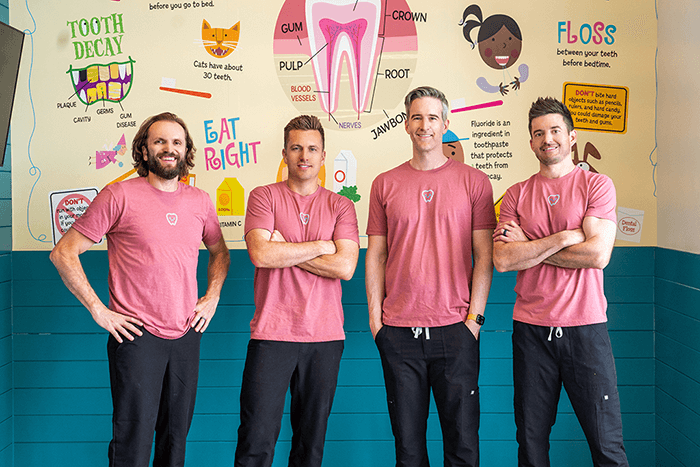Are Baby Teeth Important?
Baby teeth are more important than most people realize. Even though they’re temporary, they play a big role in your child’s overall health and development. Baby teeth, or first teeth, usually start coming in around six months, and by age three, most children have a full set of 20. These small teeth are essential for helping your child grow, develop, and maintain good oral health.
In this article, we’ll explain why baby teeth matter, how they impact future dental health, and share tips for taking care of them.
Why Are Baby Teeth So Important?
Tiny, but mighty — that’s how dentists think of baby teeth. You might just see cute smiles and giggles when you look at them, but those teeth have serious work to do:
- Saving Space for Permanent Teeth: Baby teeth help guide permanent teeth into the right position. When one is lost too early, it can cause the nearby teeth to shift, making it harder for the adult teeth to grow in properly.
- Speech Development: Believe it or not, baby teeth are crucial for your child’s ability to form sounds and speak clearly.
- Chewing and Nutrition: Without healthy baby teeth, it’s harder for your child to chew food properly. And we all know that proper nutrition is key to their growth and development.
- Self-Esteem: Having a healthy smile helps kids feel good about themselves. When baby teeth are neglected, it can lead to pain, embarrassment, or discomfort — all things we want to help our little ones avoid.
- Preventing Infection: Cavities in baby teeth aren’t just painful; they can lead to more serious infections. If decay isn’t treated, it could spread and even affect the underlying adult teeth.
Key Reasons Baby Teeth Are Essential for Your Child’s Development
Caring for your child’s baby teeth is important now and helps ensure they have healthy teeth for life. Here are a few key reasons why baby teeth are essential for your child’s overall development:
- They Help Form Your Child’s Face and Jaw: Baby teeth actually help shape your child’s face! When they’re lost prematurely, it can affect the way their facial muscles and bones develop.
- Building Confidence Early: A healthy smile is a confident smile, and we all want our kids to feel good about themselves. If their teeth are healthy, it’s one less thing for them to worry about, and it can help build confidence in their interactions with others.
- Preventing Future Problems: Caring for baby teeth also helps protect the adult teeth developing underneath. Infections or decay in baby teeth can cause problems for the adult teeth as they grow in.
How Baby Teeth Impact Future Dental Health
The state of your child’s baby teeth can have a lasting impact on their dental health as they grow. Here’s why:
- They Act as Guides for Permanent Teeth: Baby teeth hold space for adult teeth. If a baby tooth is lost too early, it can cause crowding or crooked adult teeth.gnment issues, leading to crowding or crooked teeth when the adult teeth come in.
- Preventing Big Issues Later: Letting cavities or other dental issues go untreated in baby teeth can cause problems down the road. For instance, severe decay can lead to infections that might damage the adult teeth beneath.
- Setting the Stage for Healthy Habits: Teaching kids to care for their baby teeth helps build lifelong dental habits. Starting with good brushing, flossing, and regular dentist visits early will protect their adult teeth in the future.
Tips for Taking Care of Your Baby’s First Teeth
When it comes to baby teeth, a little care goes a long way. Here are some tips to help you keep your child’s teeth healthy:
- Start Early: Even before your baby’s teeth come in, you can gently clean their gums with a damp cloth. Once that first tooth appears, it’s time to start brushing with a small, soft-bristled toothbrush and a tiny bit of fluoride toothpaste.
- Fluoride is Your Friend: Using a little fluoride toothpaste helps to strengthen your child’s enamel and protect against cavities. For babies and toddlers, a tiny amount is all you need — about the size of a grain of rice.
- Limit Sugary Snacks and Drinks: Sugar is a major culprit when it comes to cavities. Try to limit sugary snacks and drinks like juice, especially before bed.
- Establish a Routine: Make brushing and flossing a fun, regular part of your child’s daily routine. Even if your child resists at first, sticking to the routine will help make these healthy habits a lifelong part of their day.
- Visit the Dentist Early: You should take your child to the dentist by their first birthday or within six months after their first tooth appears. This might seem early, but it helps your child get used to dental visits and allows the dentist to catch any early signs of problems.
Will Baby Teeth Affect Permanent Teeth?
Absolutely! Baby teeth are critical for the proper alignment and health of permanent teeth. Here’s how:
- Guiding the Way: Baby teeth act as placeholders for permanent teeth, helping them come in properly aligned. Losing a baby tooth too early can cause the surrounding teeth to shift, leading to crowded or crooked adult teeth.
- Impacting Future Orthodontics: If baby teeth aren’t taken care of, the resulting issues (like crowding or misalignment) can lead to the need for orthodontic treatments, such as braces, down the road.
- Healthy Baby Teeth = Healthy Adult Teeth: Decay or infections in baby teeth can also affect the adult teeth underneath. Keeping baby teeth healthy helps ensure that your child’s adult teeth come in strong and healthy.
When to Visit the Dentist for Your Baby’s First Dental Checkup
One of the most common questions we hear from parents is: “When should my child visit the dentist for the first time?” The answer is simple — your child should visit the dentist by their first birthday or within six months of getting their first tooth. Early dental visits are important for a number of reasons:
- Preventing Cavities: The dentist will check for early signs of decay and offer tips on how to prevent cavities before they start.
- Monitoring Development: The dentist will also keep an eye on how your child’s teeth are coming in and make sure everything is developing as it should.
- Comfort with the Dentist: Starting dental visits early helps your child feel more comfortable with the dentist, reducing dental anxiety about dental appointments as they grow older.
How Pediatric Dentistry Helps Your Child
Pediatric dentistry ensures your child’s teeth stay healthy from the start. It focuses on the specific needs of infants, toddlers, and children, offering gentle care to build strong oral health habits. Pediatric dentists make visits comfortable and stress-free, helping reduce anxiety and creating positive experiences.
From regular checkups to more advanced treatments, pediatric dentistry cares for your child’s baby teeth and future permanent teeth. Early visits help prevent problems like cavities and misalignment while teaching kids how to care for their teeth.
Partnering with a pediatric dentist sets your child up for a lifetime of healthy smiles. For expert, gentle care in a fun and comfortable setting, schedule a visit with Grin Pediatric Dentistry and Orthodontics today!
